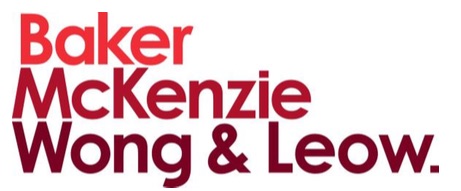10 March, 2020
There have been some recent updates to the Global Investor Programme ("GIP"), a scheme that offers Singapore permanent residency ("PR") status to individuals looking to invest and relocate to Singapore.
The GIP has minimum threshold criteria that individuals need to meet in order to apply. In addition to established business owners, the new rules have introduced three additional categories of individuals who can apply under the GIP, namely: next generation business owners, founders of fast growth companies, as well as ultra-high net worth ("UHNW") individuals who are looking to set up a single family office in Singapore.
Beyond meeting the minimum threshold criteria for application, applicants must also choose the form of their investment in Singapore. In addition to the two previously published options of (a) investing into a new or existing business entity or (b) investing into a GIP-approved fund, the new rules now include a previously unpublished option of investing into a new or existing Singapore-based single family office.
These new updates will take effect on 1 March 2020. Applications that are received by the Economic Development Board ("EDB") on or before 23:59hrs on 29 February 2020 will continue to be evaluated under the previous regime.
Summary of Key Changes
1. Updates to qualifying threshold criteria
(a) Established Business Owners. There has been an increase in the minimum average annual turnover requirement (of the applicant's existing business) from SGD 50 million to SGD 200 million. This criteria is in addition to the existing minimum shareholding requirements, a proven business and entrepreneurial track record, and the requirement for the applicant's company to fall within a list of specified industries.
(b) Next Generation Business Owners. This new criteria requires that (i) the applicant's immediate family is either the largest shareholder or holds at least 30% shareholding in a company that falls within a list of specified industries; (ii) such company's minimum average annual turnover to be at least SGD 500 million; and (iii) that the applicant must be a part of the management team of such company.
(c) Founders of Fast Growth Companies. This new criteria requires the applicant to be a founder and one of the largest individual shareholders of a company that falls within a list of specified industries and has a valuation of at least SGD 500 million, and such company must also be invested into by reputable venture capital / private equity firms.
(d) Family Office Principals. This newly published criteria requires the applicant to possess some form of entrepreneurial, investment or management track record, and to have net investible assets (excluding real estate) of at least SGD 200 million.
2. Published investment options
Upon meeting one of the four threshold criteria above, applicants then have the option of choosing to invest SGD 2.5 million into one of three investment options. However, please note that Family Office Principals may only choose to invest under Option C, which is to invest SGD 2.5 million into a new or existing Singapore-based single family office.
There has largely been no change to the two previously published investment options under the previous rules of (a) Option A: Investing SGD 2.5 million into a new or existing business entity or (b) Option B: Investing SGD 2.5 million into a GIP-approved fund.
A third year milestone requirement of a minimum additional headcount and local business spending has now been removed.
3. Renewal criteria for PR status
Upon attaining GIP approval, and having made the requisite investments within the specified time frame, applicants and their dependents will be able to obtain PR status for a period of 5 years. Such PR status is subject to renewal criteria that has recently been amended. Depending on the period of renewal (3 years or 5 years), the renewal criteria includes additional headcount, increased local business spending as well as the applicants or their dependents spending at least half their time in Singapore.
What should potential applicants do?
Potential applicants should evaluate whether it may be more beneficial to apply under the current scheme (prior to 1 March 2020) or to apply under the new scheme (from 1 March 2020). Given the tight timeline before the current scheme expires, applicants should initiate the discussion with the EDB and begin the application process as soon as possible. In addition, if there are intentions to take advantage of Option C (the investment into a Singapore family office), the applicant should also assess how the GIP application may be aligned with the applications to the Monetary Authority of Singapore (“MAS”) for tax incentives (such as the Section 13X or 13R fund incentives).
While there has been a general tightening of the threshold criteria (for example, an increase in the minimum average annual turnover requirement from SGD 50 million to SGD 200 million or SGD 500 million, depending on the qualifying criteria), the new categories of qualifying criteria for next generation business owners and founders of fast growth categories is welcome and will serve to encourage more entrepreneurs to relocate to Singapore and to move their business headquarters to Singapore.
The new scheme also includes certain enhancements such as the rationalization of the criteria for subsequent renewal for PR (including the removal of the third year milestone requirements and the requirement that the applicants spend more than half their time in Singapore). In addition, under the new Option C (the investment into a single family office), while the minimum assets under management continue to be SGD 200 million, only SGD 50 million of that needs to be in Singapore accounts. These new changes reflect EDB’s efforts to calibrate the GIP to bring in a higher quality of investors into Singapore who are able to create long-term growth opportunities, jobs and investments in Singapore.
For further information, please contact:
Dawn Quek, Principal, Baker & McKenzie.Wong & Leow
dawn.quek@bakermckenzie.com





